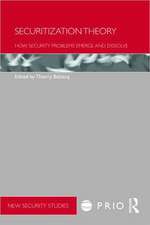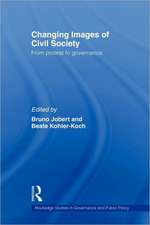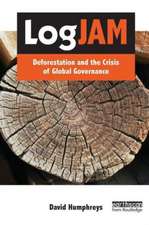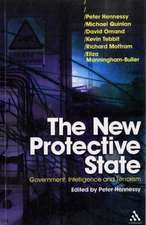Modelling and Analysis in Arms Control: NATO ASI Subseries F:, cartea 26
Editat de Rudolf Avenhaus, Reiner K. Huber, John D. Kettelleen Limba Engleză Paperback – 16 dec 2011
Din seria NATO ASI Subseries F:
- 20%
 Preț: 650.27 lei
Preț: 650.27 lei - 20%
 Preț: 668.55 lei
Preț: 668.55 lei - 20%
 Preț: 992.44 lei
Preț: 992.44 lei - 18%
 Preț: 1239.19 lei
Preț: 1239.19 lei - 20%
 Preț: 1922.81 lei
Preț: 1922.81 lei - 20%
 Preț: 654.37 lei
Preț: 654.37 lei - 18%
 Preț: 1234.00 lei
Preț: 1234.00 lei - 20%
 Preț: 709.78 lei
Preț: 709.78 lei - 20%
 Preț: 656.03 lei
Preț: 656.03 lei - 18%
 Preț: 1854.94 lei
Preț: 1854.94 lei - 20%
 Preț: 374.97 lei
Preț: 374.97 lei - 20%
 Preț: 991.94 lei
Preț: 991.94 lei - 20%
 Preț: 671.02 lei
Preț: 671.02 lei - 20%
 Preț: 1925.96 lei
Preț: 1925.96 lei - 20%
 Preț: 994.73 lei
Preț: 994.73 lei -
 Preț: 389.49 lei
Preț: 389.49 lei - 20%
 Preț: 657.99 lei
Preț: 657.99 lei - 20%
 Preț: 655.20 lei
Preț: 655.20 lei - 18%
 Preț: 1225.31 lei
Preț: 1225.31 lei - 18%
 Preț: 952.09 lei
Preț: 952.09 lei - 20%
 Preț: 332.06 lei
Preț: 332.06 lei - 20%
 Preț: 1284.47 lei
Preț: 1284.47 lei - 20%
 Preț: 644.81 lei
Preț: 644.81 lei -
 Preț: 395.85 lei
Preț: 395.85 lei - 18%
 Preț: 1221.07 lei
Preț: 1221.07 lei - 15%
 Preț: 643.34 lei
Preț: 643.34 lei - 20%
 Preț: 645.47 lei
Preț: 645.47 lei - 20%
 Preț: 1282.98 lei
Preț: 1282.98 lei - 20%
 Preț: 656.36 lei
Preț: 656.36 lei - 20%
 Preț: 1283.31 lei
Preț: 1283.31 lei - 20%
 Preț: 1924.15 lei
Preț: 1924.15 lei - 20%
 Preț: 362.24 lei
Preț: 362.24 lei
Preț: 654.12 lei
Preț vechi: 769.55 lei
-15% Nou
Puncte Express: 981
Preț estimativ în valută:
125.16€ • 131.03$ • 103.57£
125.16€ • 131.03$ • 103.57£
Carte tipărită la comandă
Livrare economică 05-19 aprilie
Preluare comenzi: 021 569.72.76
Specificații
ISBN-13: 9783642829451
ISBN-10: 3642829457
Pagini: 504
Ilustrații: VIII, 492 p.
Dimensiuni: 170 x 244 x 26 mm
Greutate: 0.8 kg
Ediția:Softcover reprint of the original 1st ed. 1986
Editura: Springer Berlin, Heidelberg
Colecția Springer
Seria NATO ASI Subseries F:
Locul publicării:Berlin, Heidelberg, Germany
ISBN-10: 3642829457
Pagini: 504
Ilustrații: VIII, 492 p.
Dimensiuni: 170 x 244 x 26 mm
Greutate: 0.8 kg
Ediția:Softcover reprint of the original 1st ed. 1986
Editura: Springer Berlin, Heidelberg
Colecția Springer
Seria NATO ASI Subseries F:
Locul publicării:Berlin, Heidelberg, Germany
Public țintă
ResearchCuprins
I History, Lessons, Issues.- Arms Control and Strategic Military Stability.- Arms Control for the Long Term.- Arms Control - Lessons Learned and the Future.- Arms Control Frustration - Understanding the Impasse and how to Break it.- Defense Outlays and Arms Control in the Election Cycle.- II Pre-Arms Control Assessment of Options and Objectives.- Report of the Chairman: What Role can Analysis Play in Illuminating Arms Control Objectives and Options.- The Use of Arms Control Negotiations Simulation as a Bridge Between Policy and Analysis.- Pre-Arms Control Assessment of the Strategic Balance: The Impact of Objectives and Approaches.- Generation of Alternative Force Configuration for Arms Control Negotiations Using Linear Programming.- Stability, SDI, Air Defense and Deep Cuts.- Pre-Arms Control Assessment of the Conventional Balance in Europe.- On Strategic Stability in Europe Without Nuclear Weapons.- Defense Expenditure Dynamics Between Two Potential Opponents.- Deterrence and Incomplete Information - The Game Theory Approach.- III Negotiations.- Report of the Chairman: Negotiation Issues.- Two-Person Bargaining Between Threat and Fair Solution.- General Ordinal 2×2 Games in Arms Control Applications.- Building a US-Soviet Working Relationship: Ideas on Process.- Problems of Flexibility in the Nuclear Arms Race.- Superpowers and Arms Negotiations: Political Climates and Optimal Strategy.- A Computerized Third Party.- IV Verification and Post-Agreements Assessments.- Report of the Chairman: Verification and Post-Agreement Assessment.- Arms Control and Strategic Defence.- The Prospects for a Satellite Monitoring Agency.- The Feasibility of Space-Based Remote Sensing in the Verification of a Treaty to Prevent an Arms Race in Outer Space.- Notes on Arms-ControlVerification: A Game-Theoretic Analysis.- On Concepts for Solving Two-Person Games which Model the Verification Problem in Arms Control.- International Atomic Energy Agency Safeguards.- Verification at the Crossroad.- Workshop Participants.- About the Authors.














